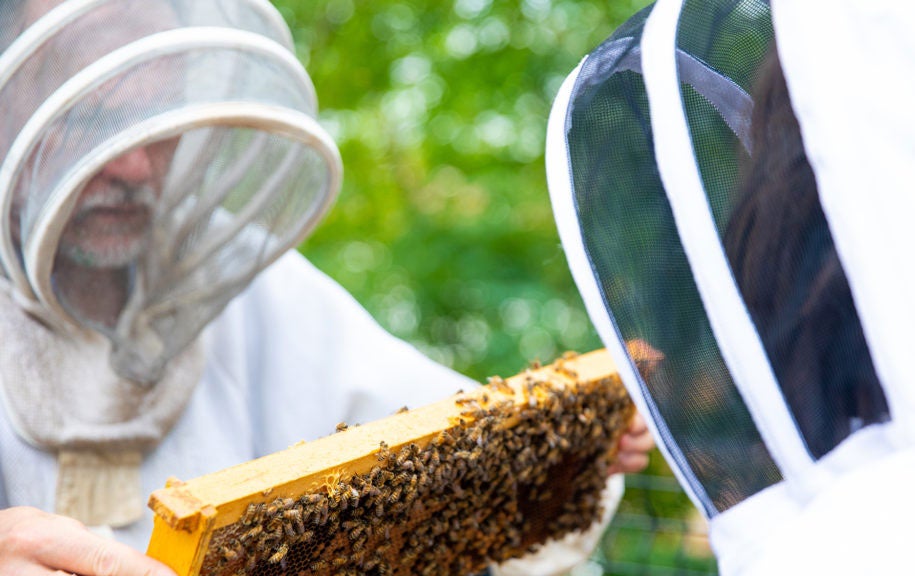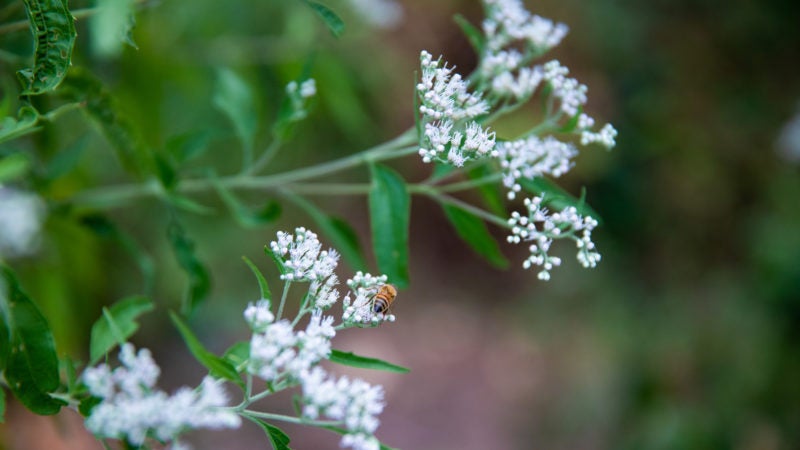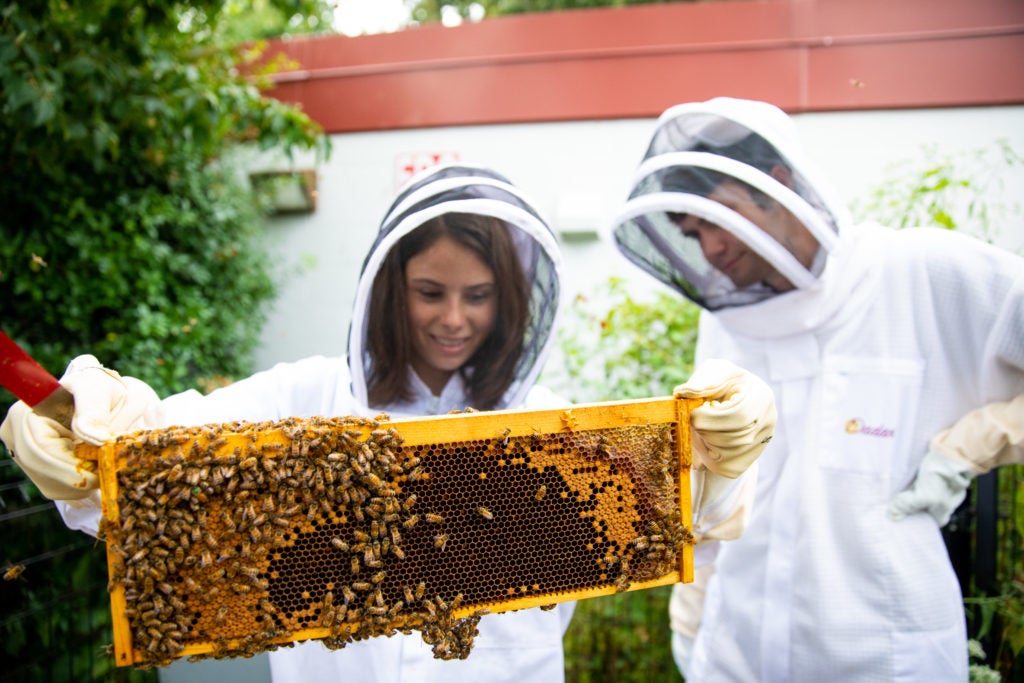What’s the Buzz? Georgetown Works to Increase Pollinators as ‘Bee Campus’
To help counter threats to the Earth’s biodiversity, Georgetown is making a long-term commitment to increasing native and non-native pollinators on campus and is seeking designation as a Bee Campus.
The Xerces Society, a conservation organization, created to encourage universities to commit to establishing habitat plans, host awareness events and sponsor and track student service-learning projects concerning native pollinators.
“The phrase Bee Campus is something that’s used because people can relate to honey bees,” notes William Hahn, an associate research biology professor. “In reality, it is a pollinator campus. And the issue is that pollinators are rather diverse and abundant, but they are very seriously threatened.”
First Bee Campus
Georgetown would be the first university in Washington, DC to become a Bee Campus.
Universities that have this designation also agree to offer pollinator-focused courses and/or workshops, post signage to educate the campus community and maintain a website to share Bee Campus USA news and activities.

Hahn, also an adjunct professor in Georgetown’s Science, Technology and International Affairs (STIA) program, is working with a group of faculty, staff and students on campus to accomplish these goals.
The professor helps with the honey beehives that undergraduates take care of as part of the Georgetown student group Hoya Hive.

Play Youtube Video
Hands-on Hives
The Bee Campus project is one of 11 supported this year by Georgetown’s Laudato Si’ Fund.
The fund, which takes its name from Pope Francis’ 2015 encyclical on environmental justice, supports sustainability projects and programs that respond to Francis’ call to “care for our common home” by creating a healthier and more biologically diverse local ecosystem.

“My experience working with professors and facilities has been a real advantage for the Bee Campus initiative and personally,” says Allyse Smith (NHS’21) a global health major from Goshen, Indiana and a member of Hoya Hive. “The professors are experts in their field so I have a lot to learn from them, whether it is hands-on at the hives or pointing me in the direction of relevant research.”
Faculty on the Bee Campus committee, besides Hahn, include biology professors Martha Weiss and Edd Barrows; Cynthia Wei, a STIA teaching professor at the School of Foreign Service (SFS); and Adriane Fugh-Berman, a professor in the pharmacology and physiology department at Georgetown University Medical Center.
“The Bee Campus goals really allowed us to bring together a lot of different people,” says Hahn, who keeps a dozen hives in his back yard. “We have the biology department and the medical center and SFS involved and we have gardeners and architects, people from our Office of Sustainability and student groups and an environment that lends itself to meaningful service-learning projects.”
When fully populated, each hive contains between 30,000 to 50,000 bees. The students don full bee suits to visit the two hives up on Observatory Hill, inspecting them and getting rid of mites and making sure they have enough to eat, especially in winter.
‘Unsung Benefits’
Smith and other students have participated in national pollinator week in June by working on a pollinator awareness event with the DC Department of Energy and Environment. They also attended an event at the Fairmont Hotel where they interacted with other local DC beekeepers and learned to harvest honey.
Hahn will be offering a credit-bearing beekeeping course next spring that would take students through the process of setting up a hive, installing bees, feeding them, treating them for mites, looking at the different stages of eggs and larvae and pupa and identifying the queen.
This course is part of the Science for All program and is designed to teach about the scientific principles behind successful beekeeping.
“Working on biodiversity, especially with pollinators, is so important to me because the benefits of biodiversity are often unaccounted for and underappreciated until after we have lost precious natural resources,” says Elizabeth Nguyen (SFS’21), a Science Technology and International Affairs major from Pinehurst, North Carolina and president of the Hoya Hive. “Increasing awareness of native pollinators, including bees, means a lot to me because of the unsung benefits to community ecosystems that they provide to maintain environmental balance.”
“I hope this project continues to gain momentum so that we can better promote sustainable growth, urban agriculture and natural ecosystems in our community,” she adds.
Cultivating and Preparing
The Georgetown group has already begun to become a pollinator campus by planting native plants that will attract native pollinators in the gardens on the patio level on the third floor between Regents Hall and the Leavey Student Center, on the podium at the Medical Center and in the gardens near the observatory.
Signage will go up to instruct passersby and over the fall and winter, the group will be cultivating and preparing and planting rootstock.
“I think that this project fits very, very well into the goals of the program here on campus and the papal encyclical of Laudato Si’,” Hahn says.
